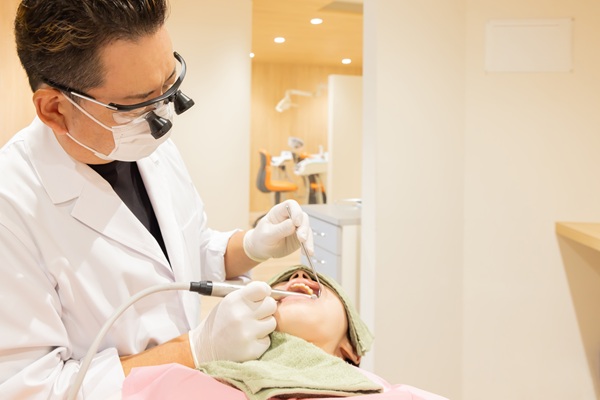Botox as a Treatment Option for TMJ Disorders

As well as for cosmetic purposes, Botox® injections are used by many dentists as a treatment for temporomanibular joint pain. TMJ is a worsening disease of the lower jaw that causes a powerful clenching sensation and can lead to serious headaches. Dentists often recommend pain relief medications and bulky overnight headgear to deal with it.
Because Botox® is given in much the same way as many dental injections, it only requires some additional training for a dentist to qualify to administer treatments. Many of the nerves that a dentist treats to deaden areas of the mouth in preparation for drilling and other procedures are the same nerves that Botox® uses. This makes cosmetic dentists a good option when looking for TMJ treatment.
Botox® as an aid to relieving TMJ
Understanding how Botox® can take the edge off of TMJ strain and discomfort may be very helpful for its sufferers:
- Reduces incidences of lockjaw
- Decreases jaw pain and discomfort
- Helps relieve jaw tension caused by chewing
- Eliminates headaches from nighttime grinding of teeth
- Lessens pain in the neck and shoulders
What causes TMJ pain?
The joint that causes TMJ is located on both sides of the face at the point where the upper and lower jaws meet. If this joint is misaligned, a person may experience anything from a degree of discomfort to intense, constant pain. The condition worsens in most people over time as the lower jaw shifts out of position. Constant jaw usage from speaking, chewing and swallowing food exacerbates the pain.
Over time, this can affect a person’s bite, making it difficult to open wide enough to bite into a sandwich or piece of fruit. Headgear is often worn by TMJ sufferers to align the jaw but may not sufficiently eliminate the muscle stress. Botox®, when injected, effectively relaxes the muscles enough to eliminate much of the stress and strain that can cause severe pain.
What is the procedure like?
Because the injections are location-specific, they only affect the nerves or muscles where it is given, namely the frontalis, the masseter and the temporalis areas. This means the treatment does not affect other normal movements.
The injections are administered right in the dentist’s office and don’t require any hospitalization or special preparation. There may be a pinching or pressure sensation as the needle goes in, but it is not usually painful. Treatment typically only takes between 15 and 30 minutes, and it may begin to bring some relief immediately. There may be a noticeable improvement in the symptoms within hours. Patients often gain relief from the headaches, jaw pain and nighttime tooth grinding.
Depending on the severity of the condition, it may require multiple repeated treatments over time. Usually there is virtually no recovery time needed, so the injection schedule can be fitted into a normal workday.
Conclusion
Many dentists offer treatments beyond fillings and tooth cleanings. Finding a cosmetic dentist who is also trained in the use of Botox® injections to ease the strain of TMJ can be a huge relief to its sufferers.
Are you considering Botox in the Huntsville area? Get more information at https://www.yourhuntsvilledentist.com.
Check out what others are saying about our services on Yelp: Read our Yelp reviews.
Recent Posts
Patients often search for root canal treatment when a tooth aches from deep decay, a crack, or inflamed pulp tissue. This therapy removes irritated nerve tissue, disinfects the canal space, and seals the tooth to prevent reinfection. By preserving the natural root, the procedure maintains bite balance and chewing strength. With careful planning, a restored…
Looking for information on periodontic care? Continue reading to learn about situations when a dentist might recommend periodontics. Periodontal disease, commonly known as gum disease, is a serious oral health issue that can result in severe oral infections and tooth loss. Periodontal disease may be contained and handled with the appropriate professional treatment.Gum disease can…
Dental veneers can improve the shape, color, or symmetry of the smile in a way that looks natural. These thin restorations are bonded to the front of the teeth to enhance appearance while maintaining a natural feel. Available in both composite and porcelain materials, veneers are selected based on aesthetic goals, treatment timeline, and lifestyle.Composite…
Choosing the right dental office is essential for maintaining good oral health and ensuring a positive dental experience. When visiting a new dental office, it is important to ask the right questions to ensure the practice meets your specific needs and expectations. Whether you are new to the area or simply seeking a change, asking…


